
Boston ferns are a popular choice for indoor and outdoor gardening due to their lush appearance and vibrant greenery. However, to maintain their health and beauty, proper fertilization is crucial. In this comprehensive guide, we will explore the best practices for fertilizing Boston ferns, ensuring they thrive in any environment.
Understanding the Nutritional Needs of Boston Ferns
Boston ferns, like all plants, require a balanced diet of essential nutrients to grow successfully. These nutrients include nitrogen (N), phosphorus (P), and potassium (K), often referred to as N-P-K. These elements are vital for various plant functions such as growth, root development, and overall health.
While nitrogen aids in foliage growth, phosphorus supports root development and flowering, and potassium contributes to the plant’s overall vigor and disease resistance. Therefore, choosing a fertilizer with a balanced N-P-K ratio is essential for the optimal health of your Boston fern.
Choosing the Right Fertilizer
When it comes to selecting a fertilizer for Boston ferns, there are several options available. Water-soluble fertilizers are a popular choice as they are easy to apply and provide immediate nutrients to the plant. Alternatively, slow-release fertilizers are another option that offers a steady supply of nutrients over time, reducing the frequency of application.
Organic fertilizers, such as compost or worm castings, are also beneficial for Boston ferns. These natural options not only provide essential nutrients but also improve soil health and structure. When choosing a fertilizer, consider the plant’s environment and your personal gardening preferences.
How to Fertilize Boston Ferns
Fertilizing Boston ferns is a straightforward process, but it requires attention to detail to avoid over-fertilization, which can harm the plant. During the growing season, typically from spring to early fall, apply a balanced, water-soluble fertilizer every 4-6 weeks. Always follow the manufacturer’s instructions for the correct dilution and application rates.
If using a slow-release fertilizer, apply it at the beginning of the growing season, and it should suffice for several months. For organic fertilizers, add a layer of compost or worm castings to the soil surface and water thoroughly to incorporate the nutrients into the soil.
Signs of Over-Fertilization
Over-fertilization can cause significant damage to Boston ferns, leading to nutrient burn, characterized by browning leaf tips and edges. If you notice these symptoms, reduce the frequency of fertilization and flush the soil with water to remove excess salts and nutrients.
Always err on the side of caution and under-fertilize rather than over-fertilize, as Boston ferns are sensitive to high nutrient concentrations.
Additional Care Tips for Boston Ferns
Aside from fertilization, Boston ferns require adequate watering, humidity, and light to thrive. Ensure the soil remains consistently moist but not waterlogged, as overwatering can lead to root rot. Boston ferns also prefer high humidity levels, so consider misting the leaves or using a humidity tray if the air is dry.
Place your Boston fern in a location with bright, indirect sunlight. Too much direct sunlight can scorch the leaves, while too little light can hinder growth.
Conclusion
By understanding the nutritional needs and proper fertilization practices for Boston ferns, you can ensure they remain healthy and vibrant. Remember to choose the right fertilizer, apply it correctly, and monitor your plants for any signs of nutrient imbalance. With the right care, your Boston ferns will flourish, adding beauty and greenery to your home or garden.
Boston ferns require a balanced diet of essential nutrients to grow successfully. Choosing a fertilizer with a balanced N-P-K ratio is essential for the optimal health of your Boston fern. Fertilizing Boston ferns is a straightforward process, but it requires attention to detail to avoid over-fertilization. Over-fertilization can cause significant damage to Boston ferns, leading to nutrient burn. By understanding the nutritional needs and proper fertilization practices for Boston ferns, you can ensure they remain healthy and vibrant. 
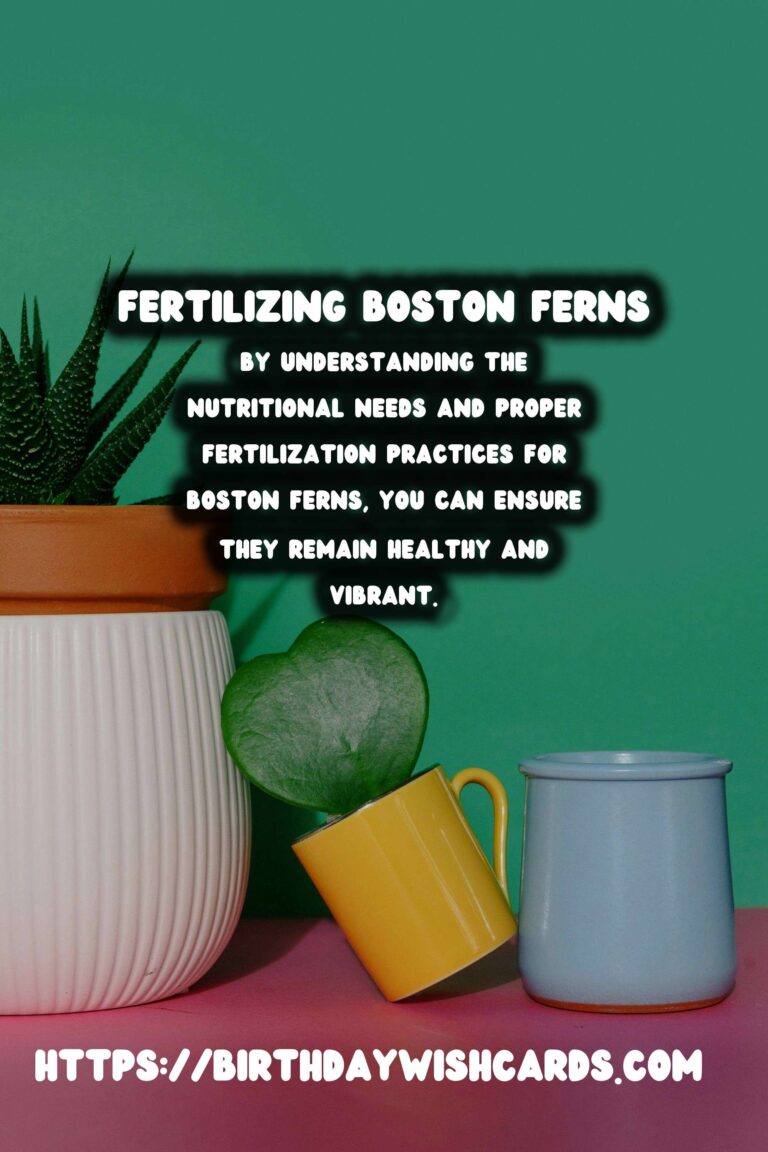
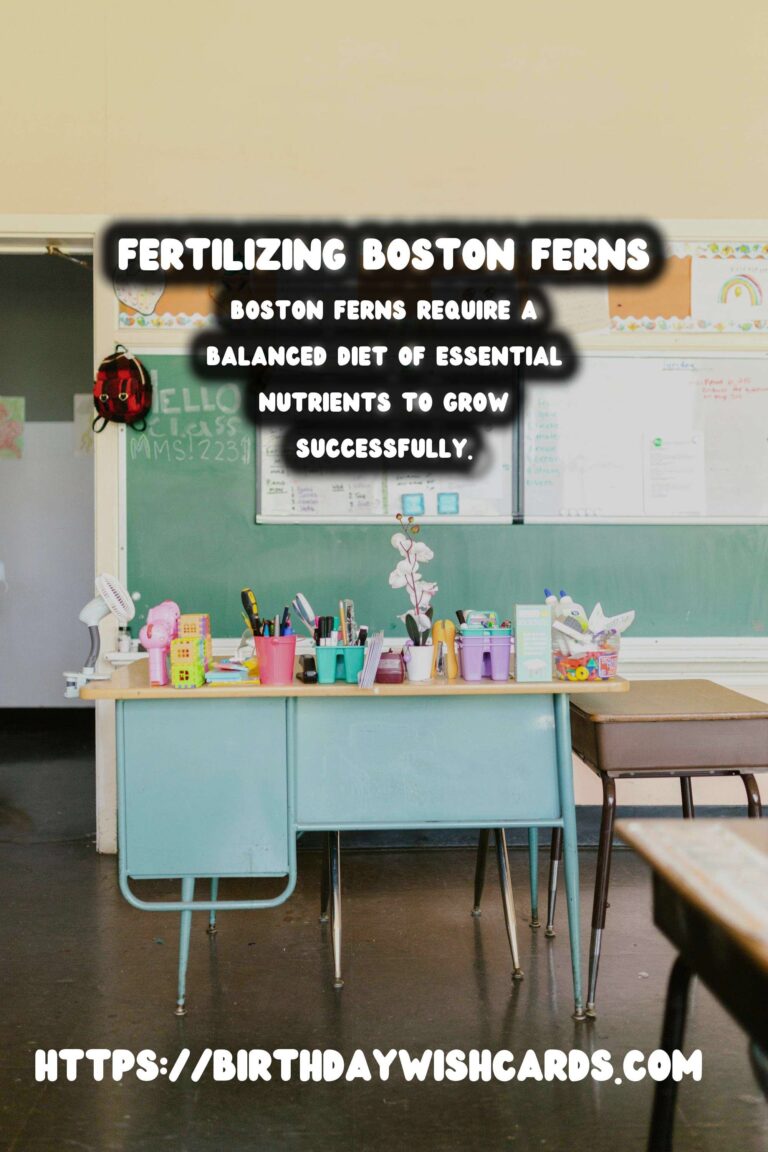
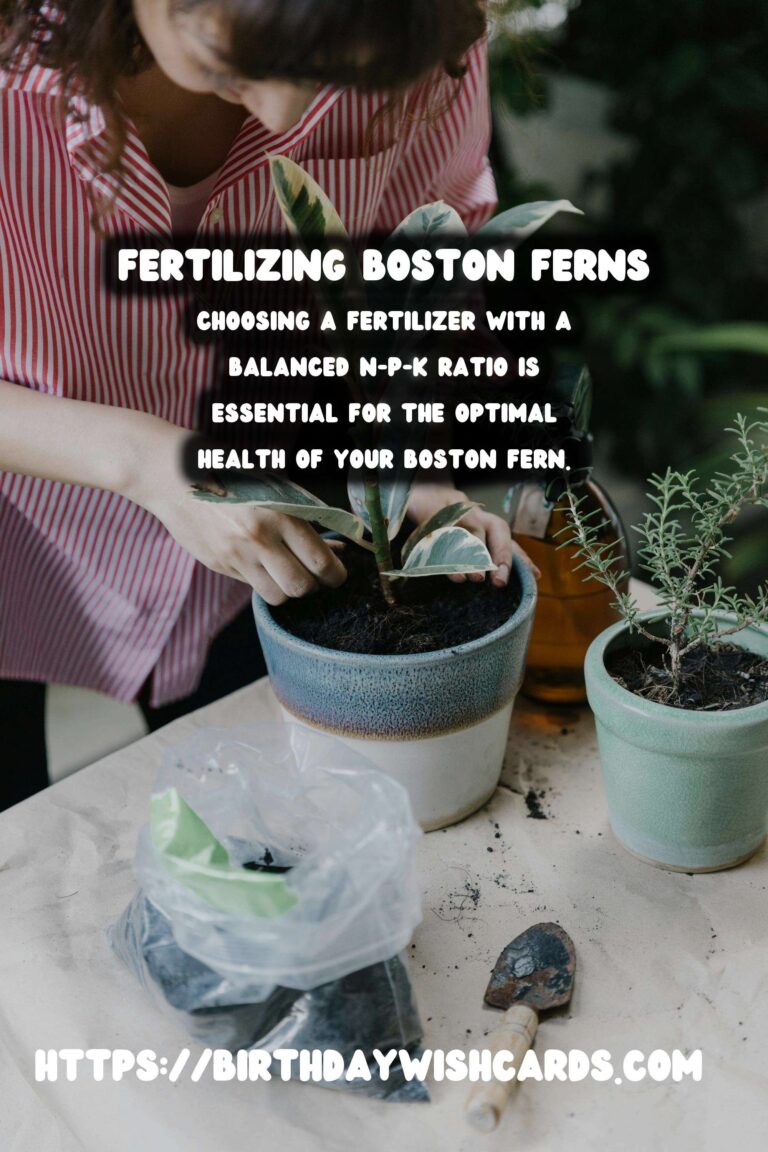
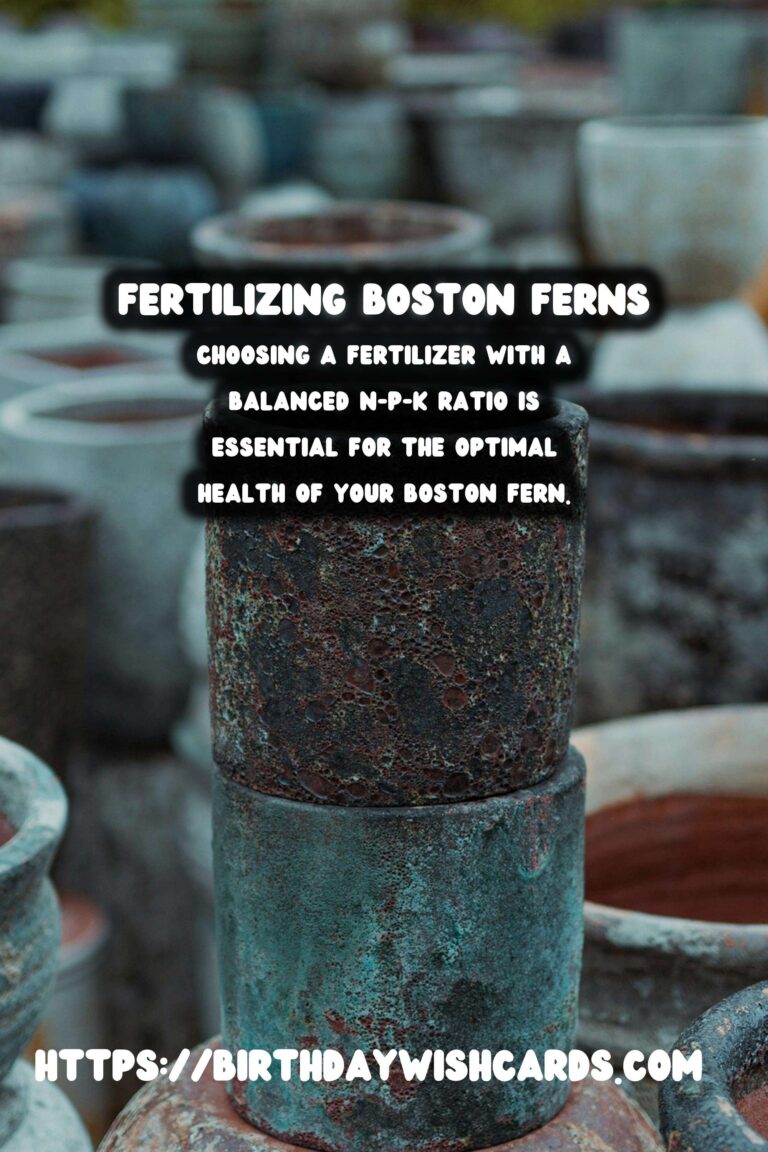

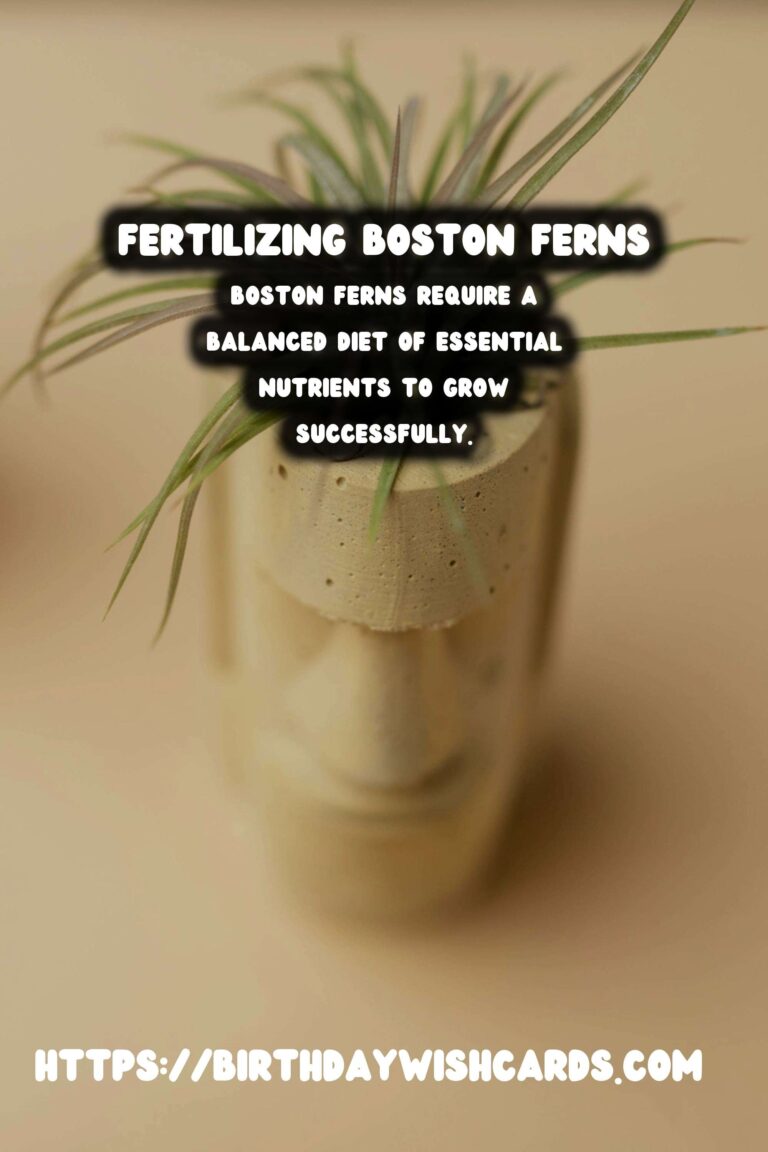

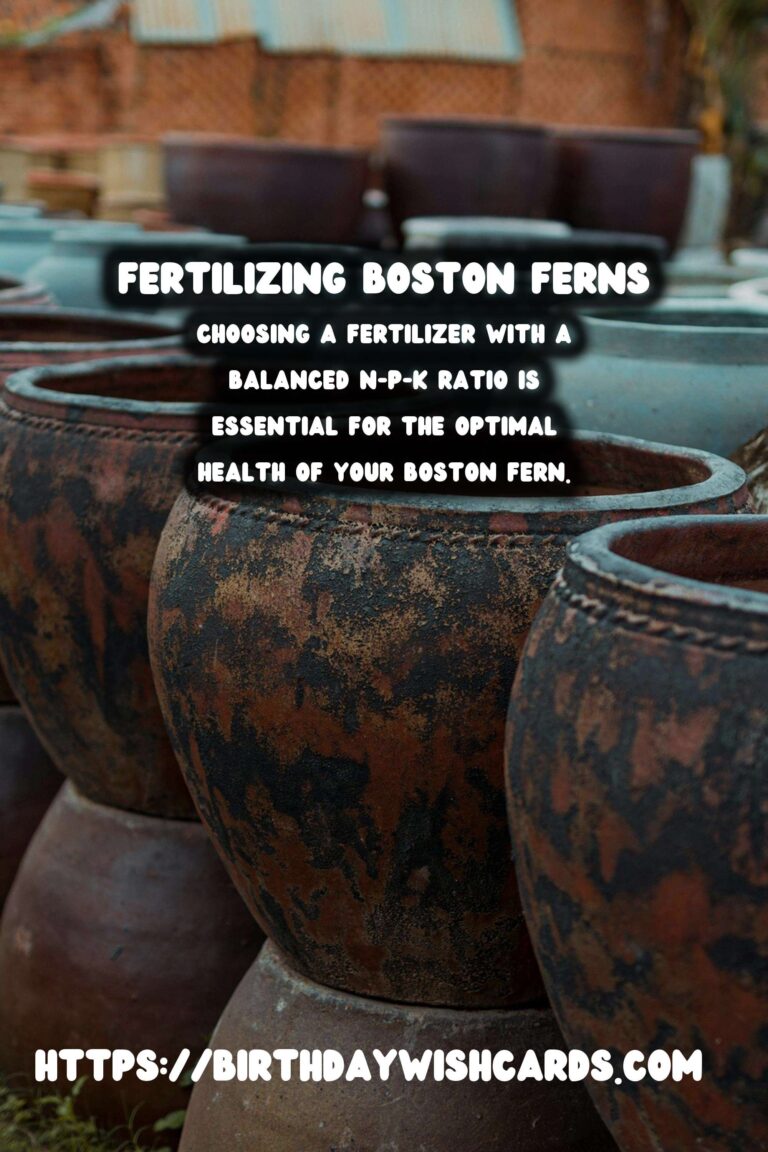
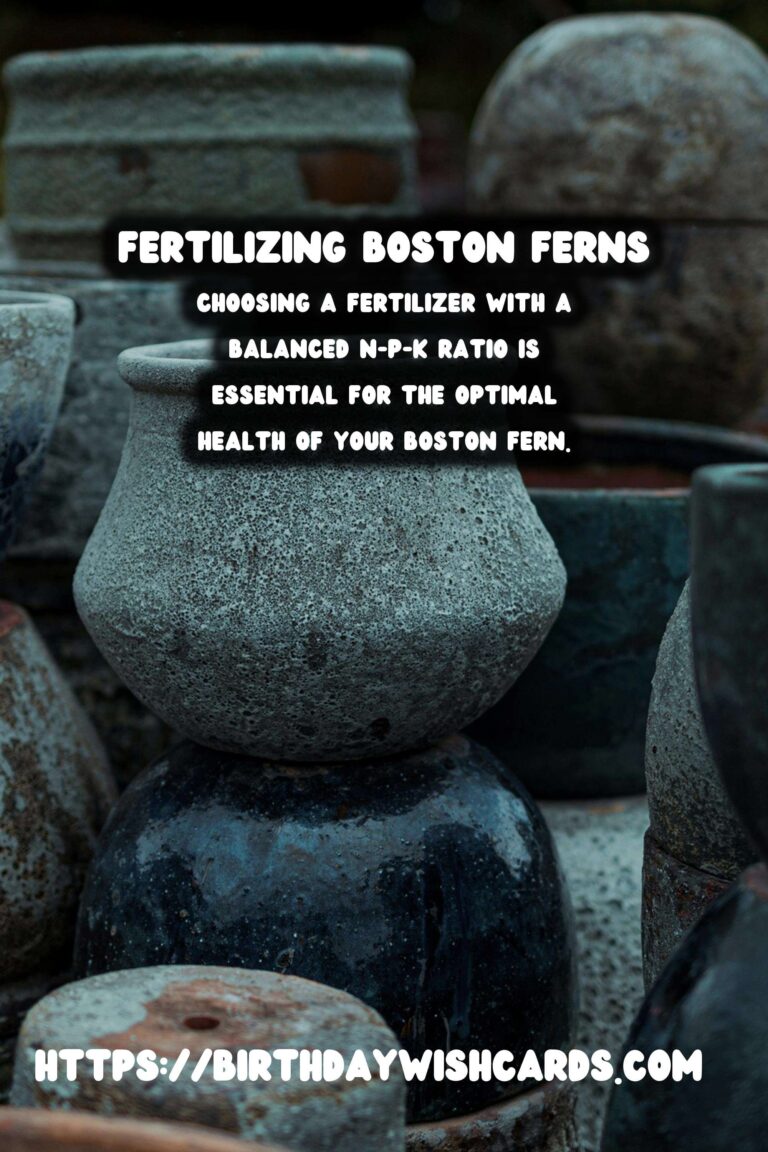
#BostonFerns #FertilizingTips #Gardening #PlantCare #IndoorPlants




